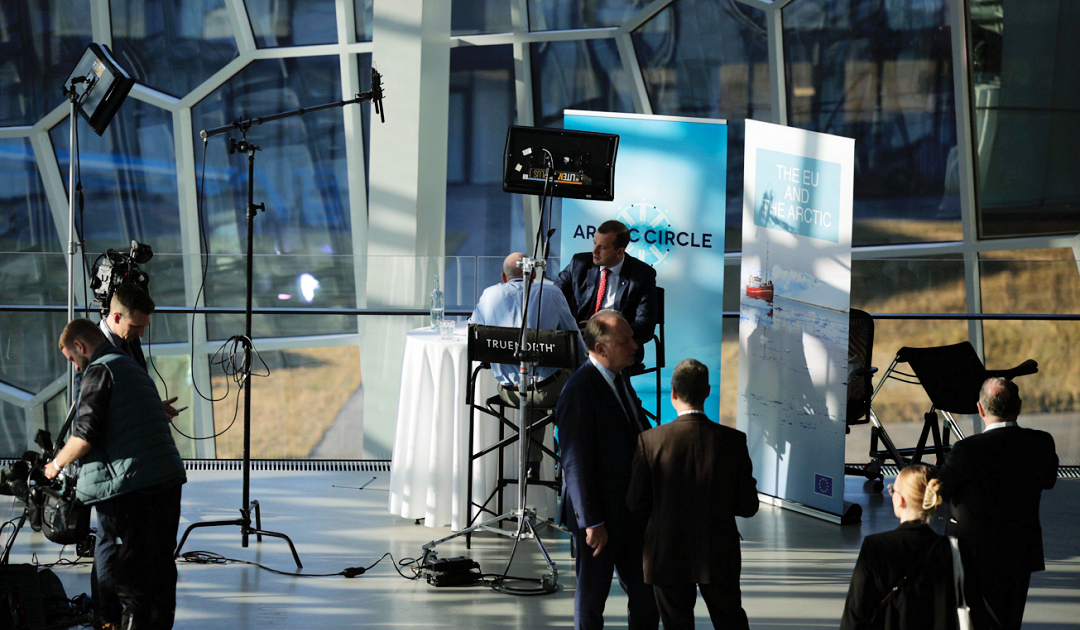
The EU has long contented itself with being on the outside and looking in when it comes to Arctic affairs. A revamped version of the bloc’s policy towards the region will see it taking a more assertive approach to promoting its interests — even if that puts it at odds with some groups.
On 13 October, the European Union published the most recent iteration of its Arctic policy. For those expecting a repeat of the stand-offish 2016 policy, which concerned itself mostly with hard-to-argue-with topics the likes of the environment and “sustainable development”, this one was something of an eye-opener.

Previously, Brussels had been content with pointing out to everyone that “the EU is in the Arctic” (thanks to member states Sweden and Finland, and to Denmark’s partial administration of Greenland), but not making much noise about it otherwise. But now that the region, it seems, has become the business of just about everyone, Brussels looks discontent with just having its flag planted there.
To be sure, the previous policies have made it clear that the EU has an opinion about the development of the region. What is different this time around, say those who follow the region closely, is that Brussels appears to be ready to put the full weight of its political and economic clout behind efforts to steer development in the region in a direction that is in line with European priorities (in short, these are making the region “greener” and keeping it “peaceful and prosperous”).

“The new policy is more concrete,” Gosia Smieszek, an academic with the University of Tromsø, said during a discussion of policy at Arctic Circle, a big annual gathering in Reykjavík, the day after it was released. “Past versions used ‘could’ and ‘should’ a lot. The one is heavy on ‘will’ and ‘do’,”
While “greener”, an EU diplomat admitted, was perhaps not wisely chosen, given concerns about the effects of global warming on the region, those who read the policy closely suggested that Brussels had considered its words carefully, and that much could be taken away from what had been included.
Ms Smieszek, for example, pointed out that the EU’s headline-producing call for a ban on oil and gas drilling in the region was, in fact, old wine in new bottles (the International Energy Agency, once a fossil-fuel industry champion, pushed the same message back in May). Adding talk of a ban to the Arctic policy left the door wide open to criticism (by its own admission, Europe still need fossil fuels for many years to come, much of which may come from Russia’s Yamal LNG plant) but EU representatives on hand in Reykjavík to stand up for the policy appeared ready to take such lumps, and indeed, to hand out some of their own.

This is because, for EU leaders, getting into verbal fistfights over energy is a way for it to show its commitment to the green cause, even if it loses: being called out for needing Russian gas, for example, makes it clear to everyone that Europe is vulnerable to Moscow’s energy shenanigans. The solution Brussels likes to point to is more and greener ways for Europe to power itself, not more gas from the Arctic or anywhere else.
Going aggressively green will give the EU the moral high ground during the UN’s next big annual climate summit, being held at the end of this month, but in the Arctic, “greener” is not always the wisest choice of words.

Kevin McGwin is a journalist who has been writing about Greenland and the Arctic since 2006. Between 2013 and 2017, he was editor of The Arctic Journal. His latest project, The Rasmussen, continues in the spirit of The Arctic Journal, offering “regional news with a global perspective.” In addition, he regularly writes articles for Arctic Today, occasionally contributes to the Greenlandic weekly newspapers Sermitsiaq AG and has written for a variety of other websites related to the Arctic.
Website: The Rasmussen
More to the topic:





